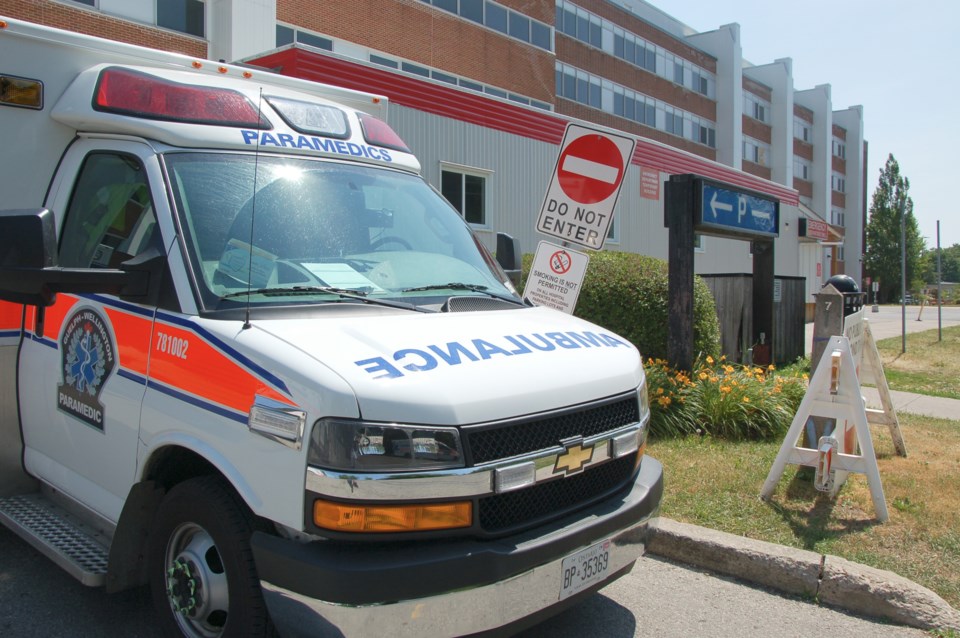On Monday, a long lineup of ambulances could be seen outside of Guelph General Hospital, all with patients waiting to be off-loaded.
Peering back the curtain inside GGH, and the domino effect is quite apparent, as both patients and health care workers navigate a system that's forever changed because of COVID-19.
"Every single bed in this hospital was full, and continues to be full almost every day," said Melissa Skinner, the VP of patient services and chief nursing executive at GGH.
The Canada Day long weekend was especially busy for the hospital.
Skinner said the emergency department normally saw 15 to 20 patients waiting to be admitted.
"That's much higher than we have ever seen," she said. "We're seeing patients come to the emergency department who are just far more sick than they were before the pandemic."
Just getting those patients inside the building took hours. Guelph-Wellington Paramedic Services chief Stephen Dewar told council Monday the process to transfer responsibility of a patient from paramedics to hospital staff is expected to take about 30 minutes.
Some patient off-loading took as long as 12 hours to complete.
Meantime, those ambulances sitting outside the hospital playing the waiting game kept them off the road. At one point Monday, a "code red" lasted about 15 minutes.
A "code red" is when there are no ambulances available to answer a call for service in Guelph or Wellington County.
And it's not even COVID-related symptoms being seen generally.
"We've seen an increase in the number of patients who presented with stroke symptoms, with chest pain and cardiac issues which can often be quite critical, and people with chronic health conditions," Skinner said.
The numbers of patients being admitted per day is also on the rise. Before, they averaged about 16 a day. Now, it's 20 or more per day.
Four more people may not sound like many, but it adds up, said Skinner.
"Every single day if there's an additional four patients being admitted, you can see how the hospital can become over capacity quite quickly," she said.
It's that domino effect at work.
"I think around wave three (of COVID-19), there was predictions that post-pandemic was going to be even worse than the pandemic itself, just in terms of health care," Skinner said. "(Despite the pandemic still not over), I think we're all living that right now."
She added some have hypothesized because of delays in care over the last couple years, things have gotten worse for patients and health care providers alike.
"We're not sure, but we're definitely feeling it," Skinner said. "Not only at Guelph but our region and our province."
The help is being offered and accepted when possible too, from the province, to paramedics, to hospitals within Waterloo-Wellington, community partners and the Ontario Health Team.
But a big crux of the issue is the strain being felt with less staff to care for patients.
"Every health care provider in our region is looking for staff. They're looking to fill vacancies and the patients are there," Skinner said. "High patient demand, staff vacancies have just made this a bit of a perfect storm. And unfortunately, the hospital often becomes the place where people go when there are no other option.
"I wouldn't say that there is one thing that we can do to fix it. We need to recover. We need to increase our health human resources, which means we have to get more of our population into health care-related disciplines and through school and into roles."
- With files from Richard Vivian.
